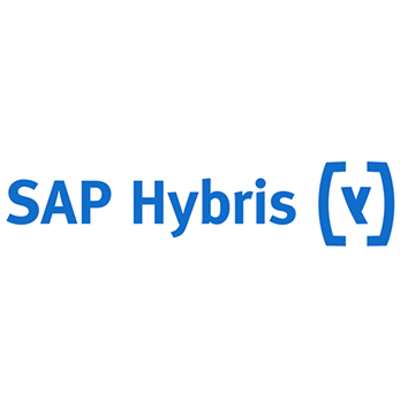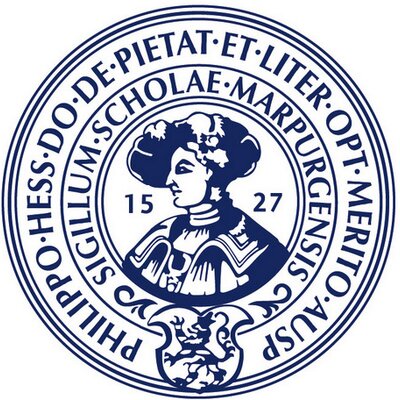I am Nils Tobias Schmidt, a cloud native software engineer at SAP Hybris.
I studied computer science at the Philipps-University of Marburg. My fields of interest are: distributed systems, Flutter and landscape photography.
Despite my passion about computers, I enjoy hiking and photographing in the alps.
Do not hesitate to contact me.
In recent years, the number of mobile applications has grown significantly. Not surprisingly, various security and privacy concerns associated with mobile applications have emerged. Several researchers are addressing these problems by analyzing the security properties of mobile application code. Most of the security checks rely on custom scripts and are quite heterogeneous with respect to dependencies, deployment and reporting. In this paper, we present AndroLyze, a distributed framework with unified logging and reporting functionality to perform security checks on large numbers of applications in an efficient manner. AndroLyze provides optimized scheduling algorithms for distributing static code analysis tasks across several machines. Moreover, AndroLyze can handle several versions of a single mobile application to generate a security track record over many versions. To demonstrate the benefits of AndroLyze, we have analyzed the Top Free 500 Android applications of all categories in Google Play collected over three years. The resulting data set consists of almost 40,000 mobile applications and requires about 227 GB of storage space.
@inproceedings{7226674,
author = {Baumgärtner, L. and Graubner, P. and Schmidt, N. and Freisleben, B.},
booktitle = {2015 IEEE International Conference on Mobile Services},
title = {Andro Lyze: A Distributed Framework for Efficient Android App Analysis},
year = {2015},
pages = {73-80},
keywords = {Android (operating system);data privacy;mobile computing;scheduling;security of data;AndroLyze;Android app analysis;Google play;custom script;distributed framework;logging functionality;mobile application code;optimized scheduling algorithm;privacy concern;reporting functionality;security check;security concern;security property;security track record;static code analysis task;Androids;Databases;Google;Humanoid robots;Mobile communication;Queueing analysis;Security;Android;mobile applications;static analysis},
doi = {10.1109/MobServ.2015.20},
issn = {2329-6429},
month = jun
}
Serval is an open-source, delay-tolerant wireless ad-hoc networking system designed to allow communications anywhere and anytime, despite the total loss of supporting telecommunications infrastructures provided by mobile phone operators. In emergency situations, Serval can be used to establish a disaster-response communications network spontaneously formed by mobile phones and/or battery powered wireless routers. In this paper, we present an in-depth experimental evaluation of Serval for various network setups and usage patterns, including simulated long term use. The focus of our evaluation is on the delay-tolerant aspects of Serval, providing insights into the scenarios where Serval can be deployed with satisfactory quality and performance characteristics. Furthermore, since mobile phones have a limited battery capacity, we take a closer look at the battery drain resulting from using Serval over different communication links, such as WiFi and Bluetooth. Our purpose in providing these analyses is to understand the current capability of Serval and identify any areas where further improvement is required, and to provide a summary of current readiness of Serval in advance of planned pilots in the Pacific region.
@inproceedings{7857262,
author = {Baumgärtner, L. and Gardner-Stephen, P. and Graubner, P. and Lakeman, J. and Höchst, J. and Lampe, P. and Schmidt, N. and Schulz, S. and Sterz, A. and Freisleben, B.},
booktitle = {2016 IEEE Global Humanitarian Technology Conference (GHTC)},
title = {An experimental evaluation of delay-tolerant networking with serval},
year = {2016},
pages = {70-79},
keywords = {ad hoc networks;delay tolerant networks;telecommunication links;Bluetooth;Pacific region;Serval;WiFi;battery capacity;battery powered wireless routers;communication links;delay-tolerant networking;delay-tolerant wireless ad-hoc networking system;disaster-response communications network;mobile phone operators;mobile phones;open-source;telecommunications infrastructures;Batteries;Bluetooth;IEEE 802.11 Standard;Protocols;Routing;Smart phones},
doi = {10.1109/GHTC.2016.7857262},
month = oct
}
In this paper, we present MiniWorld, a novel distributed network emulator. It is based on full virtualization using QEMU/KVM, offers three network backends for emulating both wired and wireless communication, and provides several mobility patterns as well as distance-based link quality models. A snapshot boot mode is offered for accelerated booting of identical environments and repeating emulation runs. To decrease runtimes, MiniWorld supports distributed emulation across multiple computers, based on a resource-aware virtual machine (VM) scheduler. Experimental results demonstrate the performance of MiniWorld with respect to VM boot times, network bandwidth, round trip times, and topology switching times.
@inproceedings{8024628,
author = {Schmidt, N. and Baumgärtner, L. and Lampe, P. and Geihs, K. and Freisleben, B.},
booktitle = {2017 IEEE Symposium on Computers and Communications (ISCC)},
title = {MiniWorld: Resource-aware distributed network emulation via full virtualization},
year = {2017},
volume = {},
number = {},
pages = {818-825},
keywords = {scheduling;virtual machines;virtualisation;MiniWorld;QEMU/KVM;VM boot times;VM scheduler;distance-based link quality models;distributed emulation;distributed network emulator;full virtualization;identical environments;mobility patterns;network backends;network bandwidth;resource-aware distributed network emulation;resource-aware virtual machine;round trip times;snapshot boot mode;topology switching times;wired communication;wireless communication;Emulation;Linux;Network topology;Servers;Virtualization;Wireless fidelity},
doi = {10.1109/ISCC.2017.8024628},
issn = {},
month = jul
}

Cloud Native Software Engineer
SAP Hybris

IT Security Software Engineer
BMW Group

Backend Developer
Hetzner Cloud GmbH

Research Assistant
Department of Mathematics & Computer Science University at Philipps-University of Marburg

M.Sc. Computer Science
Philipps-University of Marburg

Internship Java Development
Zertisa GmbH

B.Sc. Computer Science
Philipps-University of Marburg

I bought a TP Link Archer C7 half a year ago. I required a faster WiFi connection for my new NAS and the Archer comes with 802.11ac on the 5GHz channel. The setup was working quite well, but the 5GHz network disappeared sometimes and that really annoyed me. Therefore, I decided to install OpenWRT on the router. I struggled a bit with flashing the OpenWRT firmware since TP Link does some checks on the firmware which all firmwares which I found did not pass.
In the following, the process of flashing a valid OpenWRT image is...